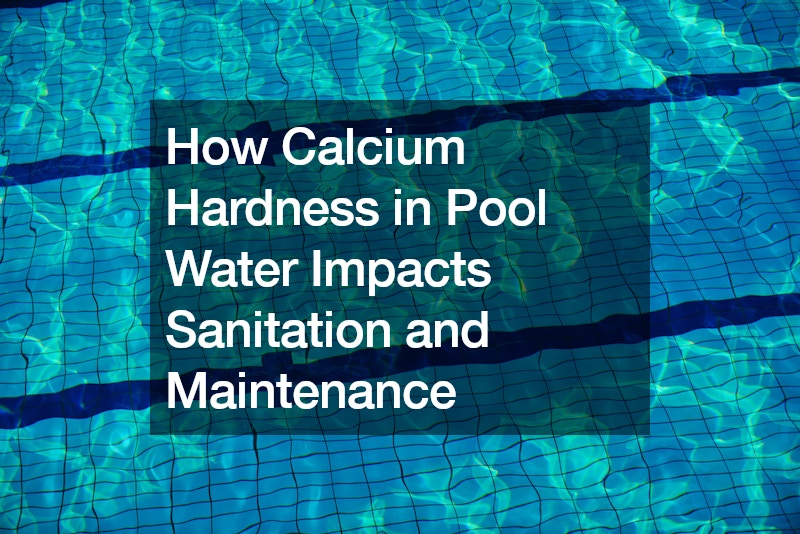
When it comes to pool care, understanding calcium hardness is key to maintaining both the sanitation and overall condition of your pool. But what exactly is calcium hardness, and how does it affect your pool?
What is Calcium Hardness?
Calcium hardness refers to the amount of dissolved calcium in pool water. This measurement is crucial because it affects several aspects of water balance and maintenance. But while calcium hardness is important, it doesn’t directly influence water sanitation. Let’s break down its roles in pool management.
Calcium Hardness and Pool Sanitation
Calcium hardness itself doesn’t impact the effectiveness of your pool’s sanitation system. Sanitation primarily focuses on controlling bacteria and algae, which are managed through regular chemical treatments and filtration systems. Algae thrive on carbon sources like alkalinity, but calcium hardness doesn’t contribute to this process.
Instead, algae growth is more influenced by factors such as the carbon content in the water and sunlight exposure. Keeping the alkalinity balanced and ensuring proper filtration are the best ways to manage algae and maintain a clean pool environment.
The Maintenance Implications of Calcium Hardness
While calcium hardness doesn’t affect water sanitation, it is crucial for maintaining your pool’s physical condition:
- Low Calcium Hardness: If calcium levels are too low, the water can become corrosive. Corrosive water can damage the pool surface, tiles, and equipment over time. This can lead to costly repairs and replacements if not addressed.
- High Calcium Hardness: Excessive calcium hardness can cause scaling. Scaling occurs when mineral deposits build up on pool surfaces and equipment, which can hinder the functionality of the pool’s circulation system and lead to long-term maintenance issues. Lower calcium hardness in pool water can prevent scaling and maintain equipment efficiency.
Maintaining the Right Balance
To keep your pool in top shape, aim for a balanced calcium hardness level. Most experts recommend maintaining calcium hardness between 200 and 400 ppm (parts per million) for optimal pool health. Regular testing and adjustment of your pool’s chemistry will help you avoid the problems associated with both low and high calcium levels.
By understanding and managing calcium hardness, you can ensure your pool remains both clean and in good condition, making your pool maintenance routine more effective and less costly.
.




